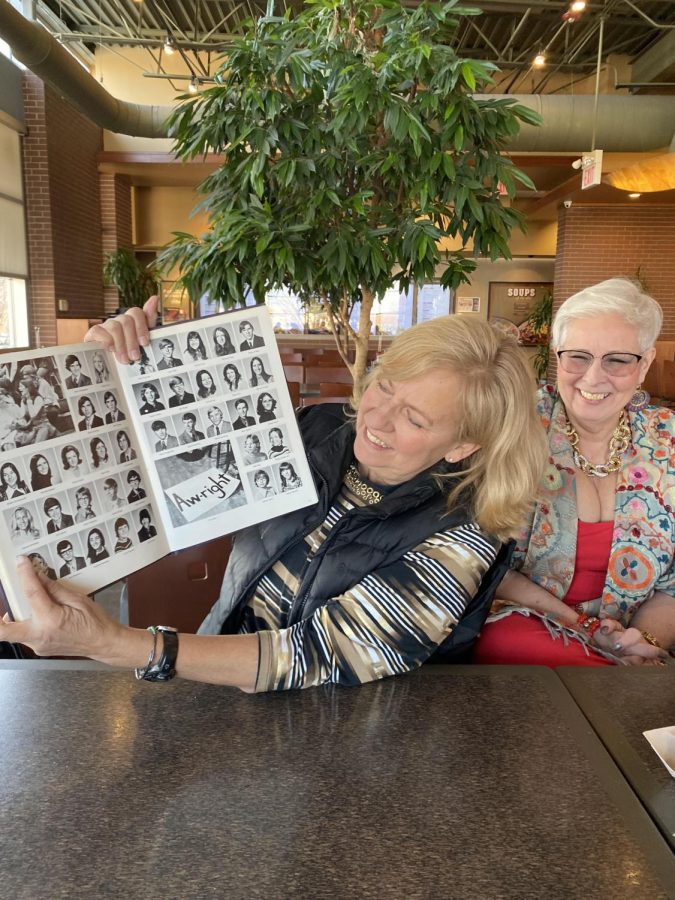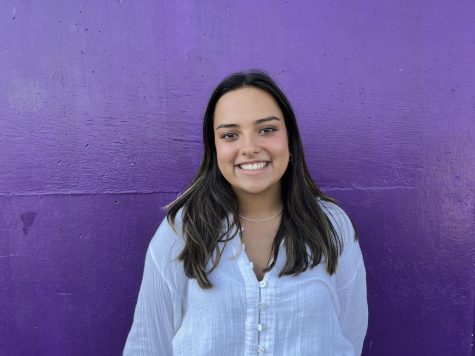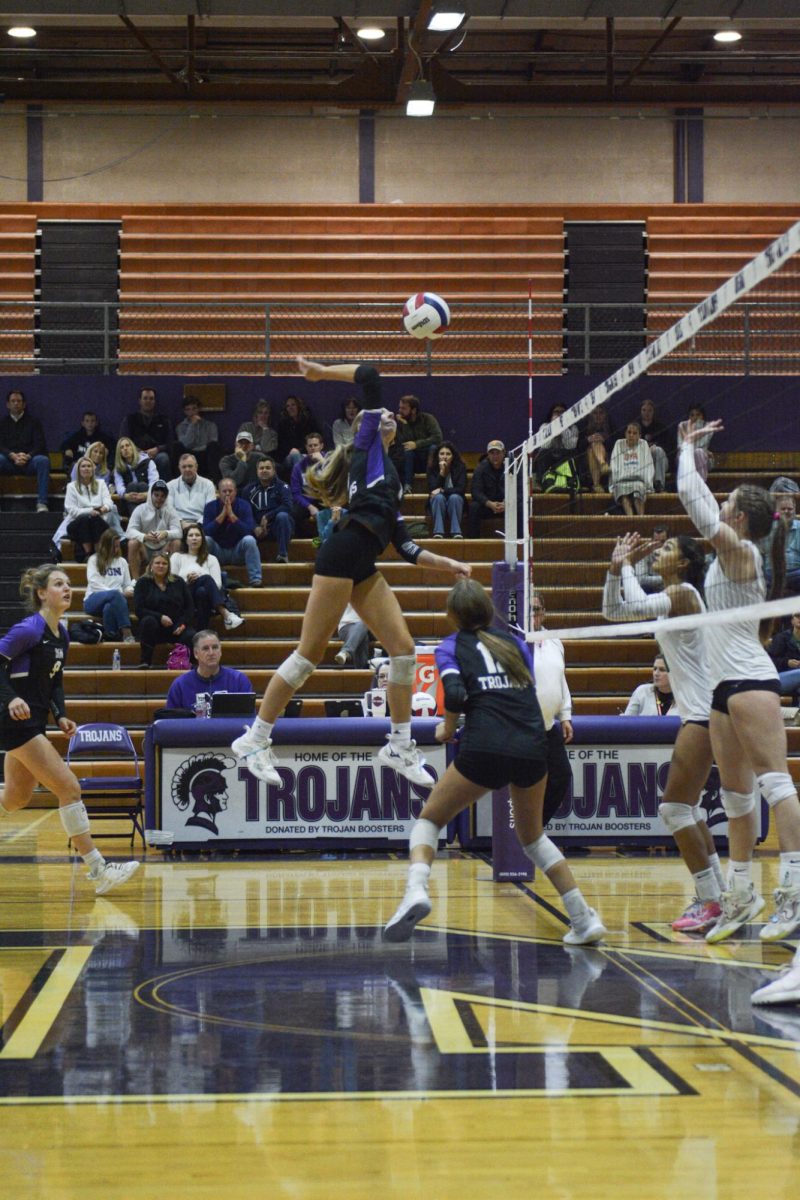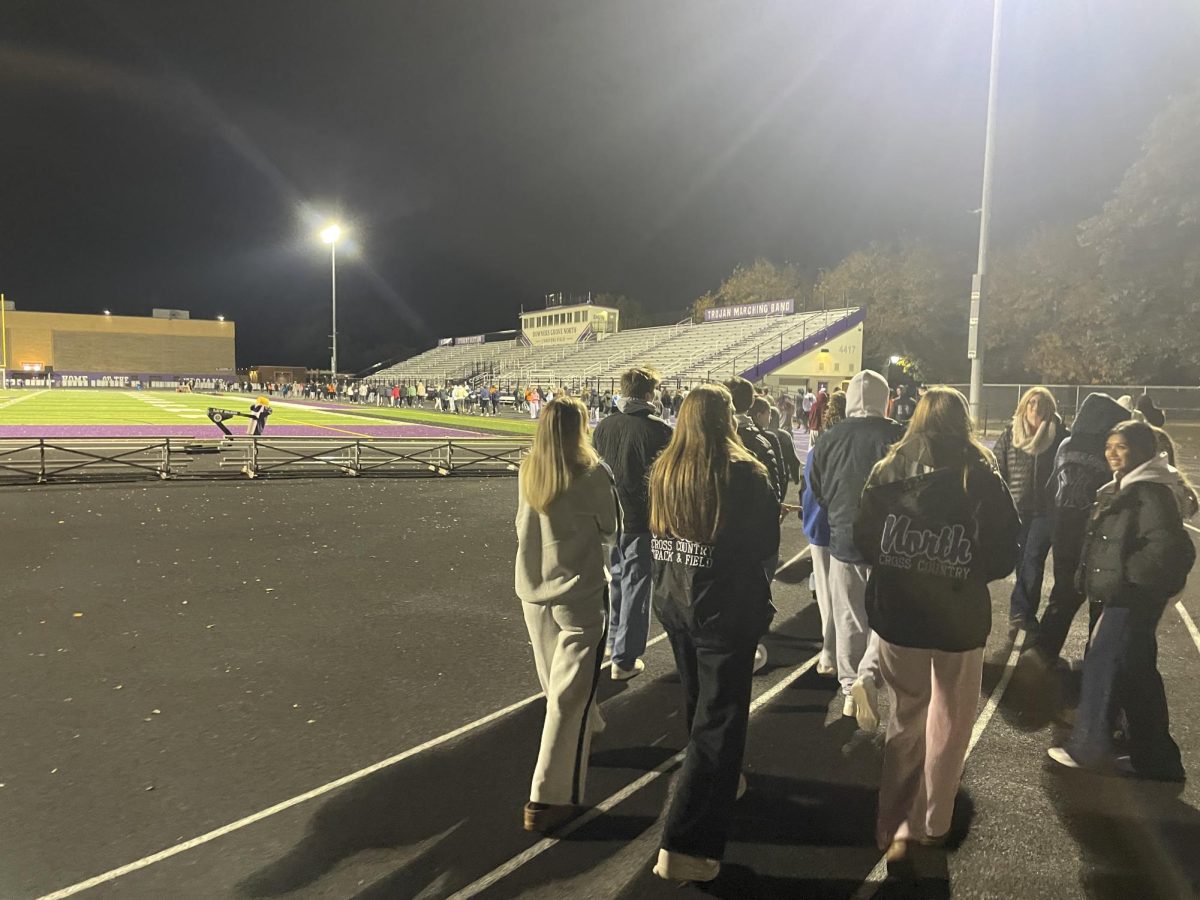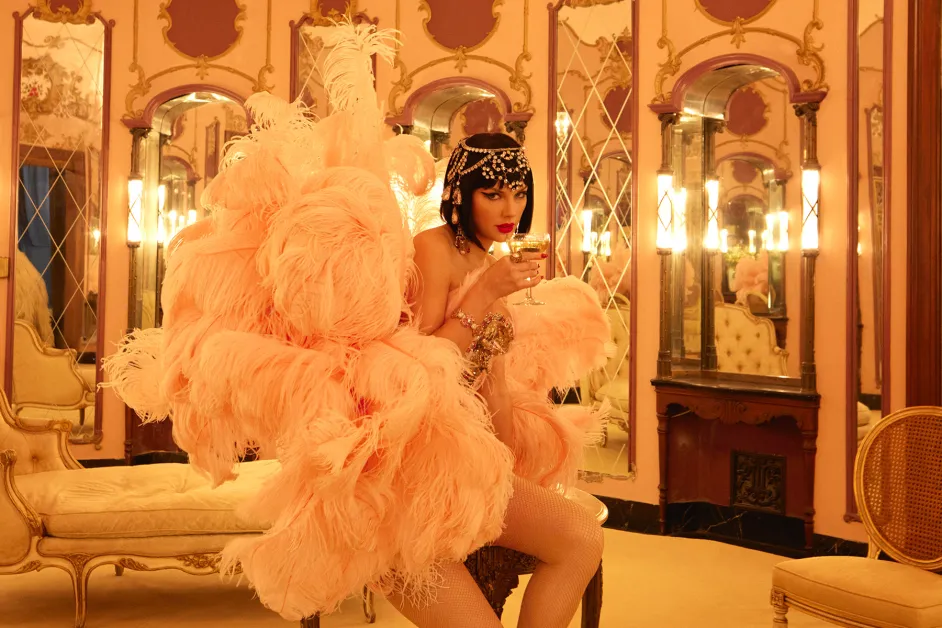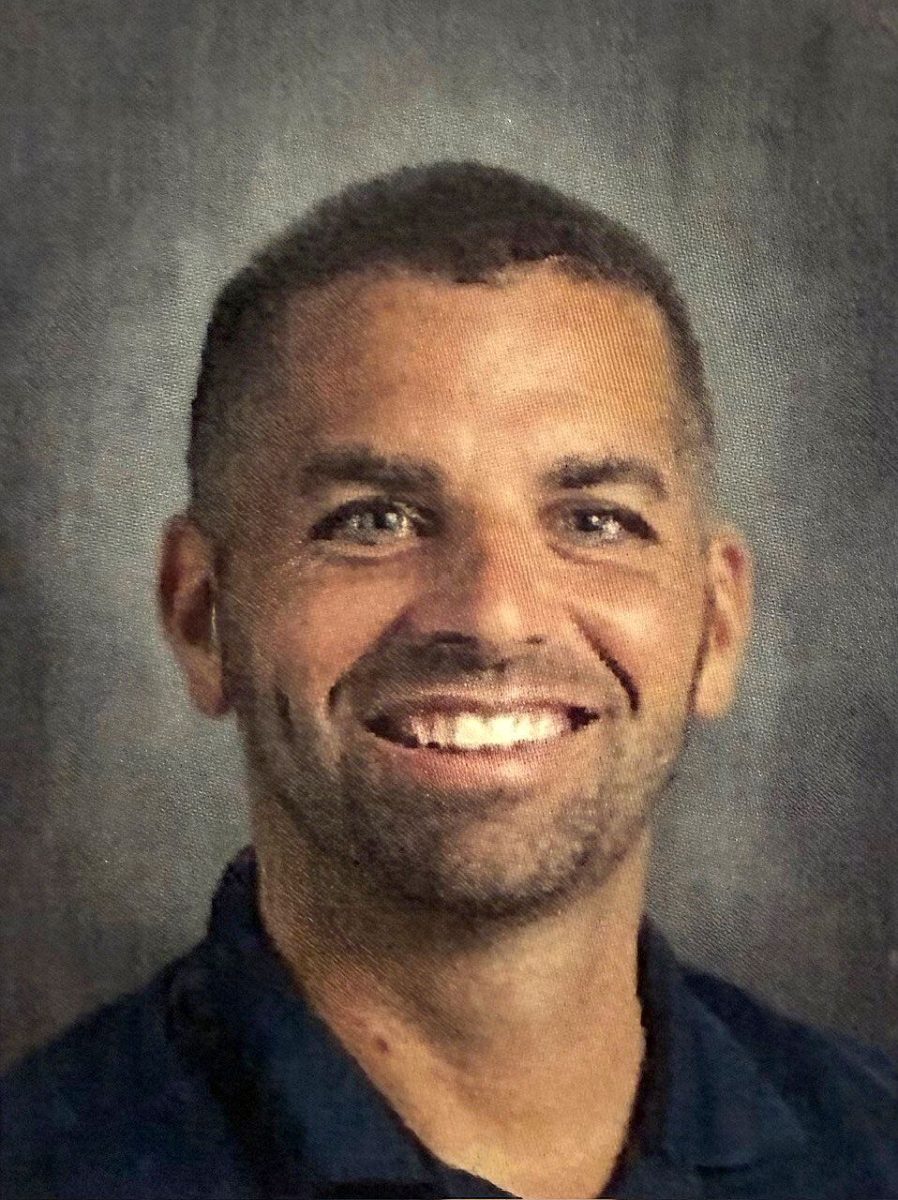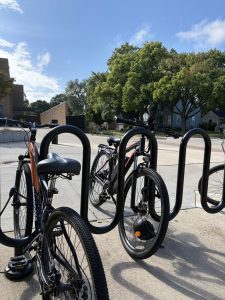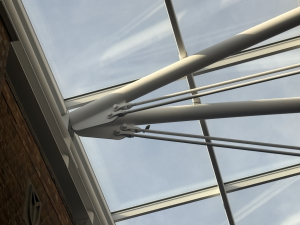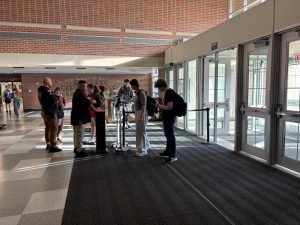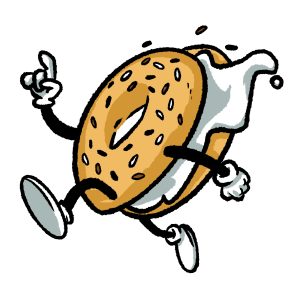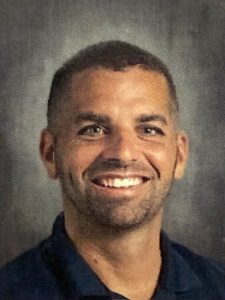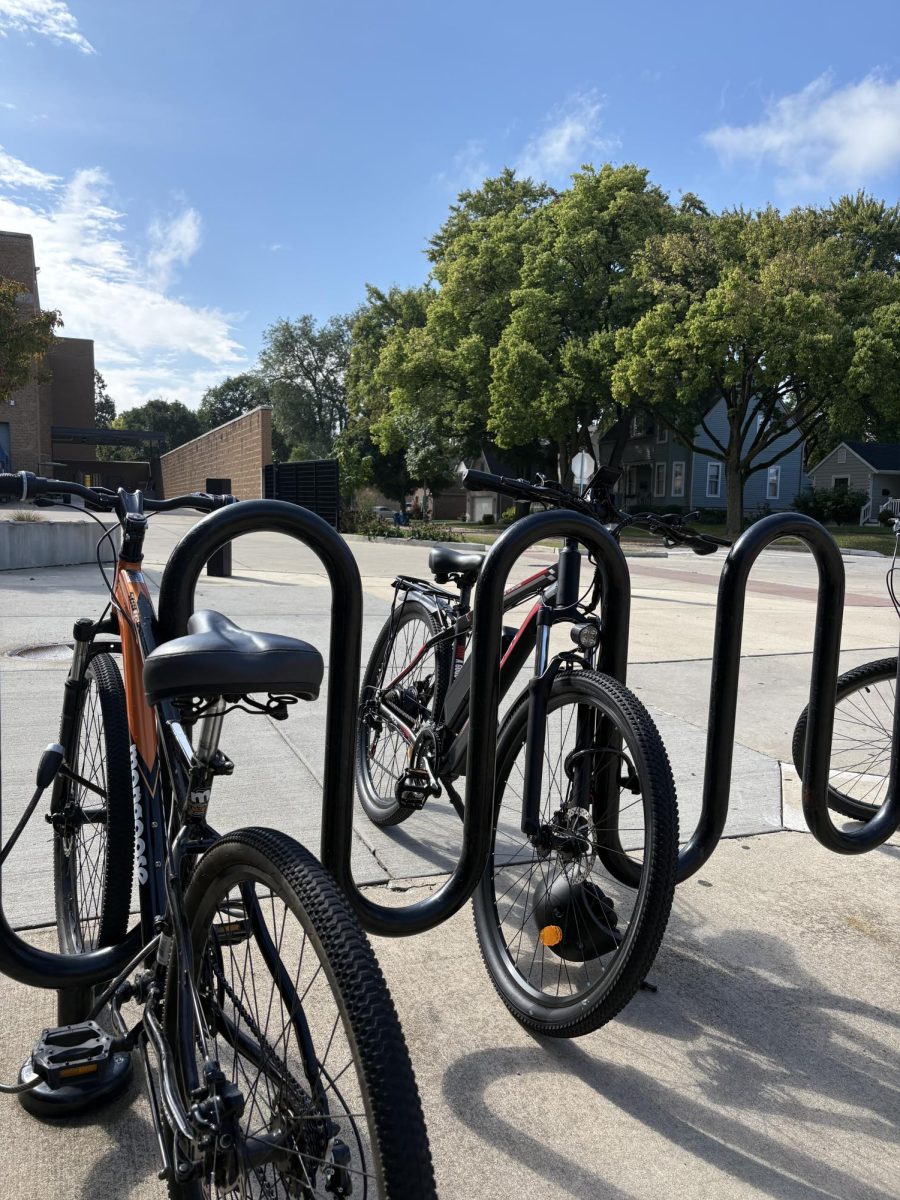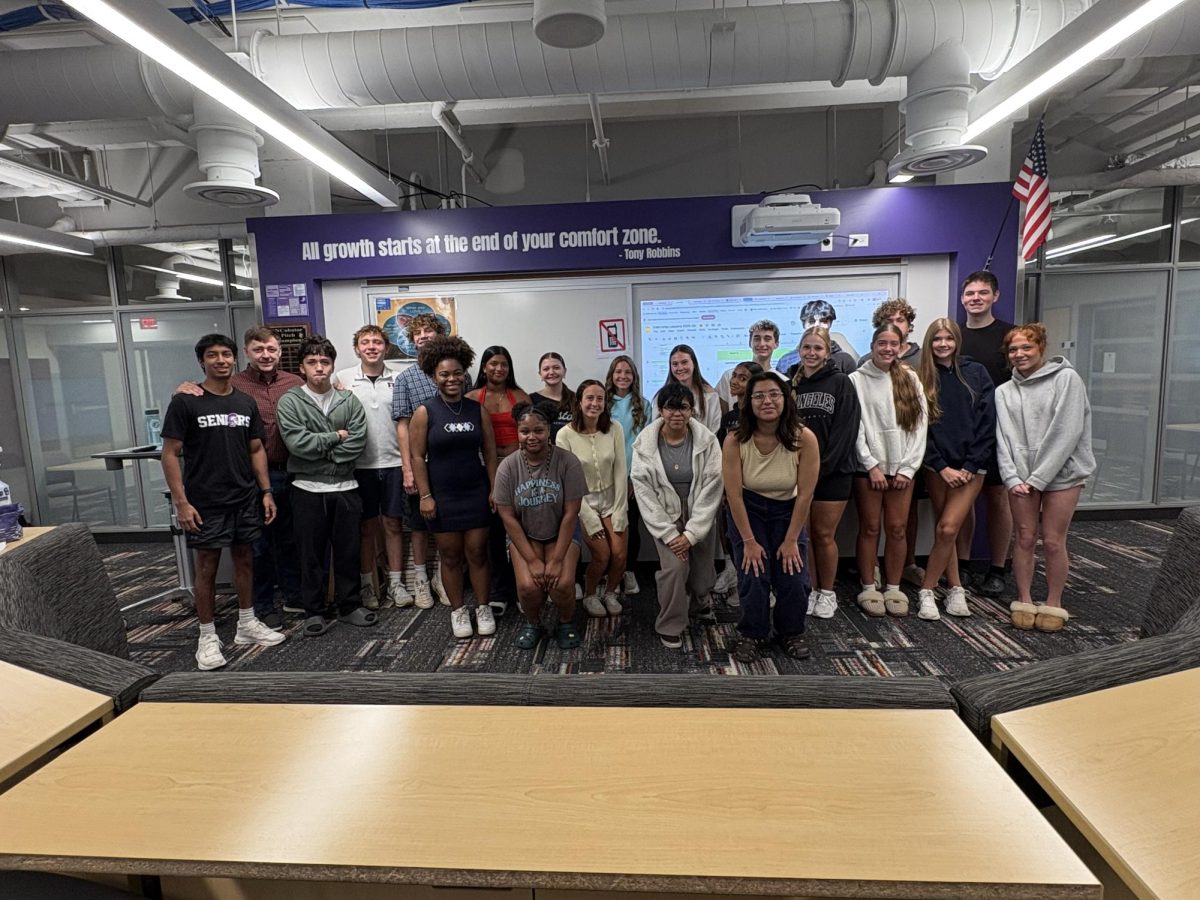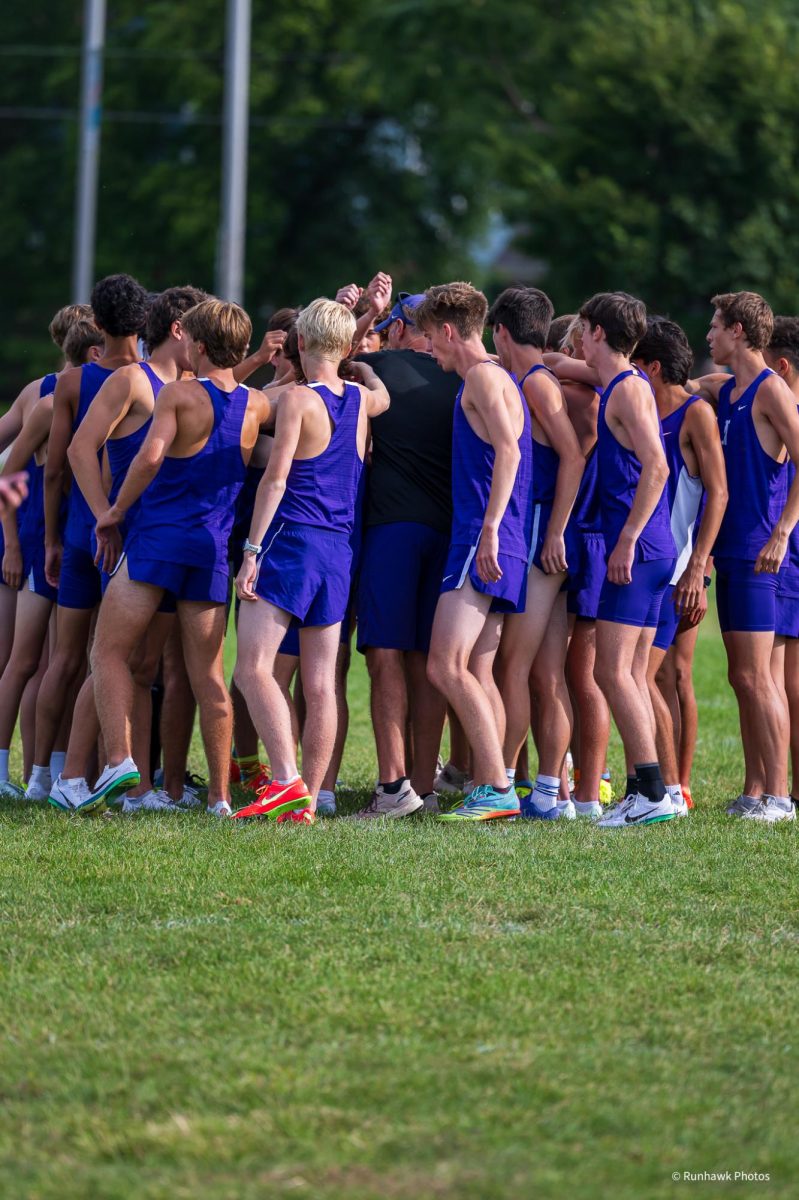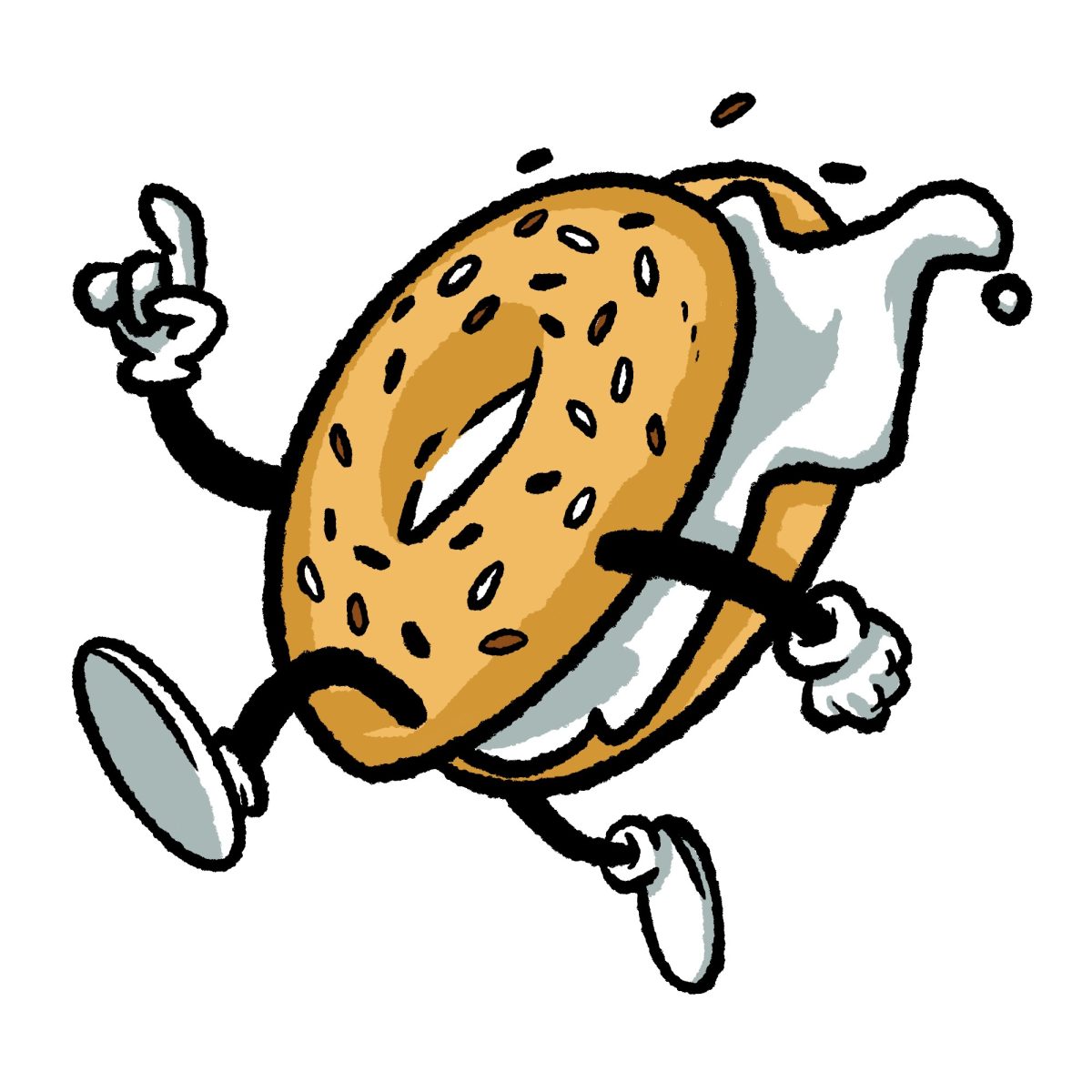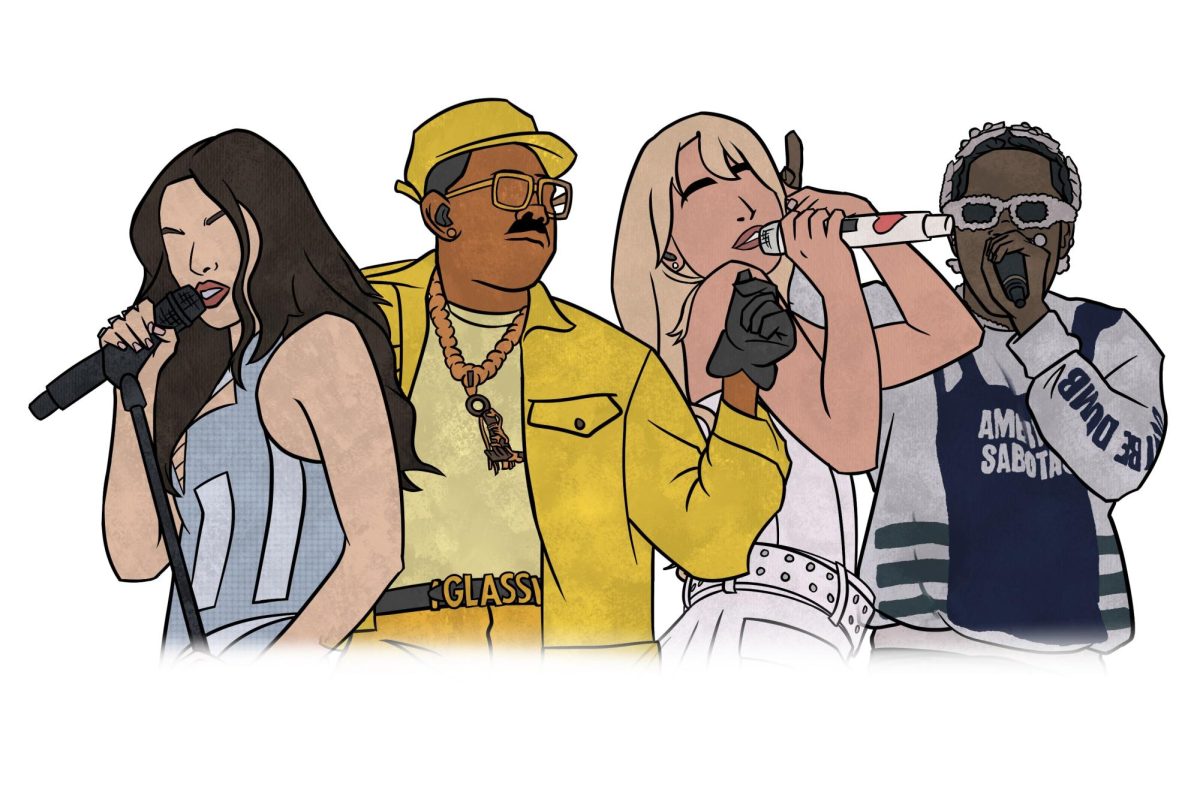Back in time: A conversation with the Trojan class of 1973
May 20, 2023
Alone, I sat on my phone during the “Chicago” musical intermission.
“Do you go to school here?” the lady on my left asked.
She offered me her concession stand M&Ms, introduced herself as Joey Douglas, and told me about DGN’s old dress code. She and the lady to her side, Jean Remus, both graduated in 1973.
A month later, I’m at The Patio listening to the stories and laughter of six 1973 graduates over ceasar salads.
I met Arla Yousef who was voted class clown after yelling “Gary, I love you!” during a Friday pep assembly.
“He was 6 ‘8 and the star basketball player. Every time his cheerleader girlfriend saw me, she’d be pissed off and I was like ‘I just did it on a dare!’” Arla said. She wore a patterned blouse, chunky jewelry, and red lipstick.
In high school, Delores Dunham was on the Athenas’ Dance Team and related to the old phrase ‘sweet sixteen and never been kissed’. She remembers going to the youth center with friends to play songs on the jukebox if there wasn’t already a live band– “it was the spot to be.”
Delores didn’t participate in sports aside from the Athenas. Girls’ sports didn’t exist at DGN until after she graduated and her only options were the dance, cheerleading, or pom pom team. Delores was a “trackette” though, along with Jean.
“Trackettes timed and held strings for the boys. You walked around in a bikini with a sign,” Jean joked.
“Did girls ever push back or advocate for girls’ sports?” I asked. The group looked at each other. No, that’s just the way it was.
After freshman year, Jean’s family moved to Minnesota where she experienced a total shift in culture and politics.
“I enrolled in a lot of girls’ athletics [in Minnesota] that were already established, well-funded, and well-equipped. I think Illinois was behind on that. Minnesota was progressive, a little socialistic, and focused on equal rights at that point,” Jean said.
In the 1970s, Title IX advancements went beyond the sports inequalities we see today.
Were there educational inequalities between genders at DGN?
“Oh yeah. The math and science world wasn’t as open to girls as it was boys,” Jean said.
During the group’s freshman year, the school dress code required girls to wear dresses until a change in policy.
“We came back from Christmas break and we could wear jeans and t-shirts. That’s when you could see what the hippies wore because they had the bell bottom jeans and boots,” Joey said.
At the time, many young girls dealt with strong expectations from their fathers. Delores took secretarial courses in high school because her father said she would be a secretary. Her now ex-husband told her that she would become a registered nurse.
“So that’s what I did,” Delores said. “I worked two waitress jobs all day to put myself through college. I just wanted to get out of there and feel like I accomplished something.”
“Girl jobs” at the time were limited to teaching, nursing, and holding a secretarial position. But Jean went to engineering school and worked for a railroad company.
“I was still living at home because my dad would’ve disowned me if I had moved out of the house without getting married,” Jean said.
She remembers the time it was National Secretaries Day. She came home from work and her father asked if the men from her office had taken her out for lunch.
“I said ‘Dad, I’m one of the people who takes the secretary out to lunch,” Jean said. “He just couldn’t even…bear it.”
Delores remembers a time that her class voted a Black homecoming king.
“My dad is from the South and is prejudiced. He was like ‘Why would your class do that?’ We thought, ‘Well he’s a real cool guy!’” Delores said.
1973 alumni, Jinny Scappino chimed in with a similar story.
“My brother was two years ahead of me in school. Students voted to put a Black guy on their homecoming float but they wouldn’t let him do it,” Jinny said.
Again, I asked if there was student pushback.
“I don’t think we had as much of a voice as you do now,” 1973 alumni Tim Caldwell said.
Expectedly, homosexuality was practically unheard of.
“If someone was gay or lesbian, you would never know. Nobody asked, nobody thought of it,” Delores said.
It surprised me that 1970s students left topics of sexism, racism, and homosexuality undiscussed while our current community members attend board meetings to argue these subjects. What was their hot controversy? The Vietnam War.
“I was one to protest the war. It got pretty hostile,” Tim said. “It was the first time that we would be eating dinner and watching the news, seeing the count of how many had died.”
1973 alumni Tom Rendall remembers community reaction after the government began limiting college deferments in 1971. Young men could no longer avoid war by attending college.
“It became very ugly. The democratic convention of 1968 in Chicago was an amazing experience to watch on TV,” Tom said.
Hippies camped out and protested the Vietnam War at the 1968 Democratic Convention in Chicago. It followed the assassination of Martin Luther King Jr. in an already racially segregated country. Jean remembers her father taking her to Chicago to watch the riots, almost as entertainment.
“Freshman year, my friend’s older sister was a part of the hippie movement. I remember being at their house and her sister was talking a lot of anti-war stuff,” Jean said. “The anti-war sentiments and the Democratic Convention in 1968 were contributing to that general questioning and unrest. I think a lot of the conversation about women’s equality was bubbling up with that and was even encouraged by that.”
However, most controversy or discussion over the war remained outside of school. Tragedy of community deaths is what struck deep.
“The hardest thing about the war was that two family friends came back in a coffin. When it started hitting close to home, you just wanted it to stop. You don’t want to see more people you care about coming home that way,” Jean said.
The hippie movement included recreational use of hallucinogenic drugs like marijuana among youth.
“Was there any sort of drug epidemic among high schoolers at the time?” I asked.
“Oh yeah, people used drugs. But it wasn’t an epidemic,” Jean laughed. “I don’t remember drugs other than marijuana.”
Underage drinking wasn’t a weekend norm but when Wisconsin lowered their drinking age to 18 in 1971, teens could road-trip for alcohol.
“I knew some people who were able to drive up there and buy cases of beer to bring back. That would end up being accompanied by a lot of drinking and smoking, especially for parties after musicals or just after school,” Tom said.
It became clear to me over lunch that the group loved their teachers, friends, and overall high school experience. 1970s students were invested in their personal lives, never feeling pressure or inadequacy brought on by social media.
“You know that old saying ‘ignorance is bliss’? We were happy. We talked at our lockers about who’s dating who, who wants to date who,” Jean said.
Truly, it was the little things.
“For our friends’ birthday we would staple candy on ribbons and tape it to the locker doors, so anyone walking by could take a piece,” Joey said.
There were the greasers who smoked between classes, the ra ra’s (cheerleaders) who got the jocks, the preppies who got good grades, and the hippies who, well, smoked weed in cool outfits. Some couples were exclusive, others casual. Teachers were caring, and students were happy.
Their advice to the soon-to-be graduate who munched her salad while listening to stories? Set up a Roth IRA retirement account and save money.


